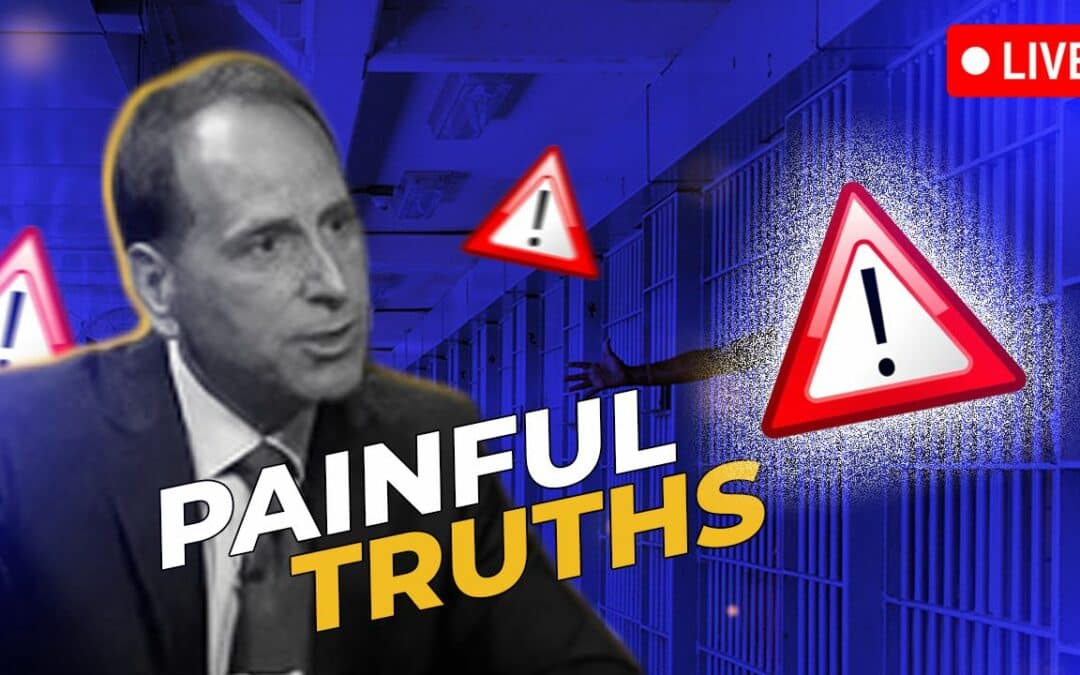Facing federal charges is hard. In this blog post and live video, we will explore painful truths that federal defendants must confront to succeed through sentencing. By understanding these truths and taking appropriate, specific actions, federal defendants can position themselves for a more favorable outcome. Let’s get started:
Reluctance to Work A Minimum Wage Job Or a Job Beneath One’s Skillset:
Failing to build a new record as a law-abiding citizen suggests an inability to earn money lawfully. Take, for instance, the case of John, who faced fraud charges. John’s defense team argued that he should receive a lenient sentence due to his lack of prior convictions. However, the prosecution highlighted John’s reluctance to find a new job during the pre-trial period, undermining his claim of rehabilitation. Ultimately, this played a role in John’s getting a sentence at the top of the sentencing guideline range.
All About Me:
Empathy, remorse, and understanding the government’s perspective are vital considerations during sentencing. Defendants who lack these qualities may be viewed as indifferent to the impacts of their actions. Consider the case of Sarah, who embezzled $280K from her employer. Despite the severity of the charges against her, Sarah consistently focused on how her own life was falling apart–she failed to show genuine remorse or acknowledge the harm caused. The judge noted her self-centered attitude and handed down a harsher sentence, emphasizing the need for defendants to demonstrate empathy and genuine remorse.
Lavish Spending Before and After Sentencing:
Extravagant expenditures can harm a federal defendant’s case, particularly when victims seek restitution. Such spending habits may be perceived as a lack of remorse and responsibility. For instance, in a high-profile fraud case involving Mark, evidence of his luxurious lifestyle emerged probation interview. The prosecution argued that Mark’s lavish spending demonstrated a disregard for the victims’ financial suffering. As a result, the judge imposed a more severe sentence.
Wasting Time and Sharing No Vision For The Future:
A clear plan for moving forward is vital for federal defendants. Failure to articulate a path away from criminal behavior raises doubts about the likelihood of reoffending. Let’s take the case of Laura, who faced charges related to paying kickbacks to doctors. Despite her legal counsel’s best efforts, Laura struggled to outline a coherent plan for her future. The judge (and her probation officer) found this lack of direction concerning and imposed a longer sentence.
Insufficient Mitigating Circumstances:
Mitigating circumstances can significantly impact the length of a federal prison sentence. It is crucial for defendants to understand and present these factors effectively.
Long-term Impact of a Federal Charge:
Federal charges can have long-term impacts that extend far beyond the resolution of the case. Even after serving a federal prison sentence or completing federal probation, the stigma and collateral consequences persist. Rebuilding one’s life, mending relationships, and reintegrating into society can be challenging. Embracing the painful truth of the long-lasting impact and proactively planning for a successful future becomes crucial. In fact, if you are reading this and have yet to be sentenced, go to Prison Professors Talent now to get involved.
Social Stigma and Judgment:
Federal charges often carry a social stigma that can lead to judgment, getting shunned and ostracized from the community. The public nature of legal proceedings and media coverage can create biases and assumptions about defendants’ guilt or character. Facing and overcoming societal judgment becomes a painful reality that defendants must navigate and embrace.
Loss of Privacy:
Federal charges often result in a loss of privacy. The invasive and public nature of the legal process can leave defendants feeling exposed and vulnerable. Personal information and intimate details of one’s life may become public knowledge. Worse you probably do not agree with the narrative.
Confronting the painful truths of federal charges is a necessary step to gain momentum and progress. I hope this blog helps you. If you would like to speak to our team, call 704-654-1604 or schedule a call here.
Justin Paperny

